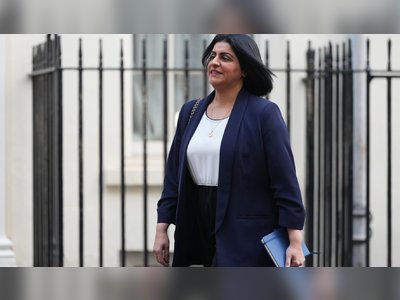UK Chancellor Reeves Defends Tax Rises as Essential to Reduce Child Poverty and Stabilise Public Finances
Reeves rejects claims her budget funds welfare excessively, saying higher taxes are needed to lift children out of poverty and rebuild economic resilience
Chancellor Rachel Reeves has defended her decision to raise taxes by £26 billion in the government’s latest budget, arguing that the measures are essential both to reduce child poverty and to restore long-term fiscal stability.
Speaking after critics accused her of using the revenue to expand welfare, Reeves said the reforms—most notably ending the cap on child benefits for larger families—represent a deliberate effort to support hundreds of thousands of children while repairing the public finances.
The Office for Budget Responsibility estimates that scrapping the cap will eventually cost around £3 billion per year while benefiting approximately 450,000 children.
Opposition parties and several policy institutes have claimed the chancellor is returning the country to a high-tax model, warning that the scale of the increases could strain household budgets and weigh on growth.
Reeves rejected the accusation, arguing that the fiscal position inherited from the previous government created unavoidable pressures.
She said the downgraded economic outlook left her little choice but to take difficult decisions now to avoid deeper instability later.
While critics continue to question whether the tax hikes will hinder economic momentum, forecasts from the fiscal watchdog suggest the new revenue will rebuild the government’s fiscal buffer to roughly £22 billion by the end of the decade.
Reeves insisted that responsible budgeting required her to operate within these projections, describing the decisions as grounded in economic necessity rather than political preference.
The debate over the budget’s balance between social support and fiscal discipline is set to continue, but the chancellor maintained that prioritising vulnerable children and stabilising public finances must remain at the centre of the government’s strategy.
Speaking after critics accused her of using the revenue to expand welfare, Reeves said the reforms—most notably ending the cap on child benefits for larger families—represent a deliberate effort to support hundreds of thousands of children while repairing the public finances.
The Office for Budget Responsibility estimates that scrapping the cap will eventually cost around £3 billion per year while benefiting approximately 450,000 children.
Opposition parties and several policy institutes have claimed the chancellor is returning the country to a high-tax model, warning that the scale of the increases could strain household budgets and weigh on growth.
Reeves rejected the accusation, arguing that the fiscal position inherited from the previous government created unavoidable pressures.
She said the downgraded economic outlook left her little choice but to take difficult decisions now to avoid deeper instability later.
While critics continue to question whether the tax hikes will hinder economic momentum, forecasts from the fiscal watchdog suggest the new revenue will rebuild the government’s fiscal buffer to roughly £22 billion by the end of the decade.
Reeves insisted that responsible budgeting required her to operate within these projections, describing the decisions as grounded in economic necessity rather than political preference.
The debate over the budget’s balance between social support and fiscal discipline is set to continue, but the chancellor maintained that prioritising vulnerable children and stabilising public finances must remain at the centre of the government’s strategy.









